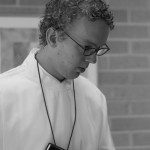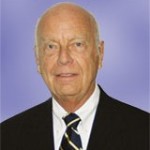
It is the stories of others that help promote dialog and understanding. Most people that I know who have once held anti-gay viewpoints but changed their view on the subject, whether their anti-gay view was based on religious convictions or not, have stated that it was personally knowing someone or hearing someone’s story that made them think about the issue in a different way.
Here is my story:
I was born in 1981, so much of my childhood was during a time when LGBT individuals had no or very little positive presence in the public sphere. Although not everyone does, I knew that I was gay from a very young age. I knew I was different and that this difference was not accepted in society and especially not in the church, so I kept it all inside and told no one of my feelings.
I come from a line of deep rich Covenant blood. I am almost 100% Swedish and can trace many of my relatives back to Sweden (for non-Covenanters, the Covenant Church was founded by Swedes). There have been numerous Covenant clergy in my family history dating back three or four generations. I attended church every Sunday and unless I was on death’s doorstep, I was there. I attended a Covenant camp in the summers and even worked at one during a summer in college. I went to CHIC, and then completed the perfect Covenanter’s journey by going to North Park University. Throughout all this, I prayed to God to fix me, or heal me, or change me. I wondered what I had done wrong to be so different from everyone else. It seemed like a cruel joke. I thought maybe if I prayed harder, or was a better Christian, God would make me “normal.” Nothing changed so I just put on the happy perfect Covenanter mask and continued living. This only lasted so long before resentment and anger started to brew, and eventually I distanced myself from the Covenant and stopped attending church altogether, but never completely abandoned God. I always knew that even though I might leave a denomination, I could never turn my back on God or deny his existence or presence in my life. Continue reading Michael Satterberg: “My Story”



